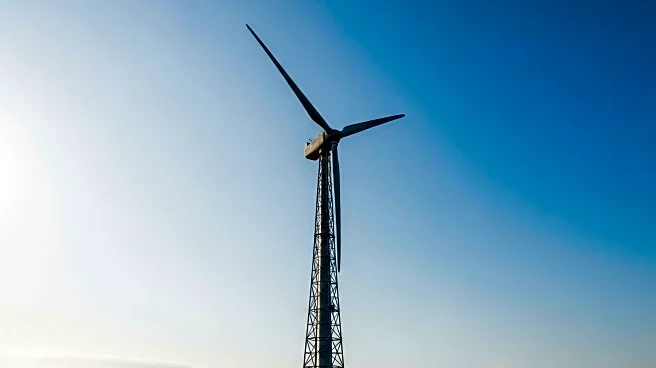What's Happening?
The Trump administration's attempt to halt the construction of Orsted's Revolution Wind offshore wind project was overturned by a federal judge. The administration had cited national security concerns as the reason for the stop-work order. However, Orsted filed a lawsuit arguing that the decision was arbitrary and violated the Administrative Procedures Act. The court's decision to lift the stop-work order allows construction to proceed, marking a significant setback for the administration's anti-wind policy agenda.
Why It's Important?
The court's decision is a critical moment for the offshore wind industry, as it challenges the Trump administration's stance on renewable energy development. The ruling may embolden other companies facing similar opposition to fight back against regulatory hurdles. This case highlights the tension between national security concerns and the push for renewable energy, which is crucial for addressing climate change and reducing reliance on fossil fuels. The outcome may influence future policy decisions and the regulatory landscape for offshore wind projects.
What's Next?
Following the court's decision, Orsted will continue construction on Revolution Wind, while the Trump administration may reassess its approach to offshore wind projects. The administration's broader review of the offshore wind industry, initiated by executive order, could lead to further legal and regulatory challenges. Stakeholders, including state governments and environmental groups, will likely continue to advocate for the expansion of renewable energy projects.
Beyond the Headlines
The case against Revolution Wind underscores the complex interplay between energy policy, national security, and environmental concerns. It raises questions about the role of government in balancing these interests and the potential impact on the renewable energy sector. The decision may prompt a reevaluation of how national security concerns are addressed in the context of energy development.









